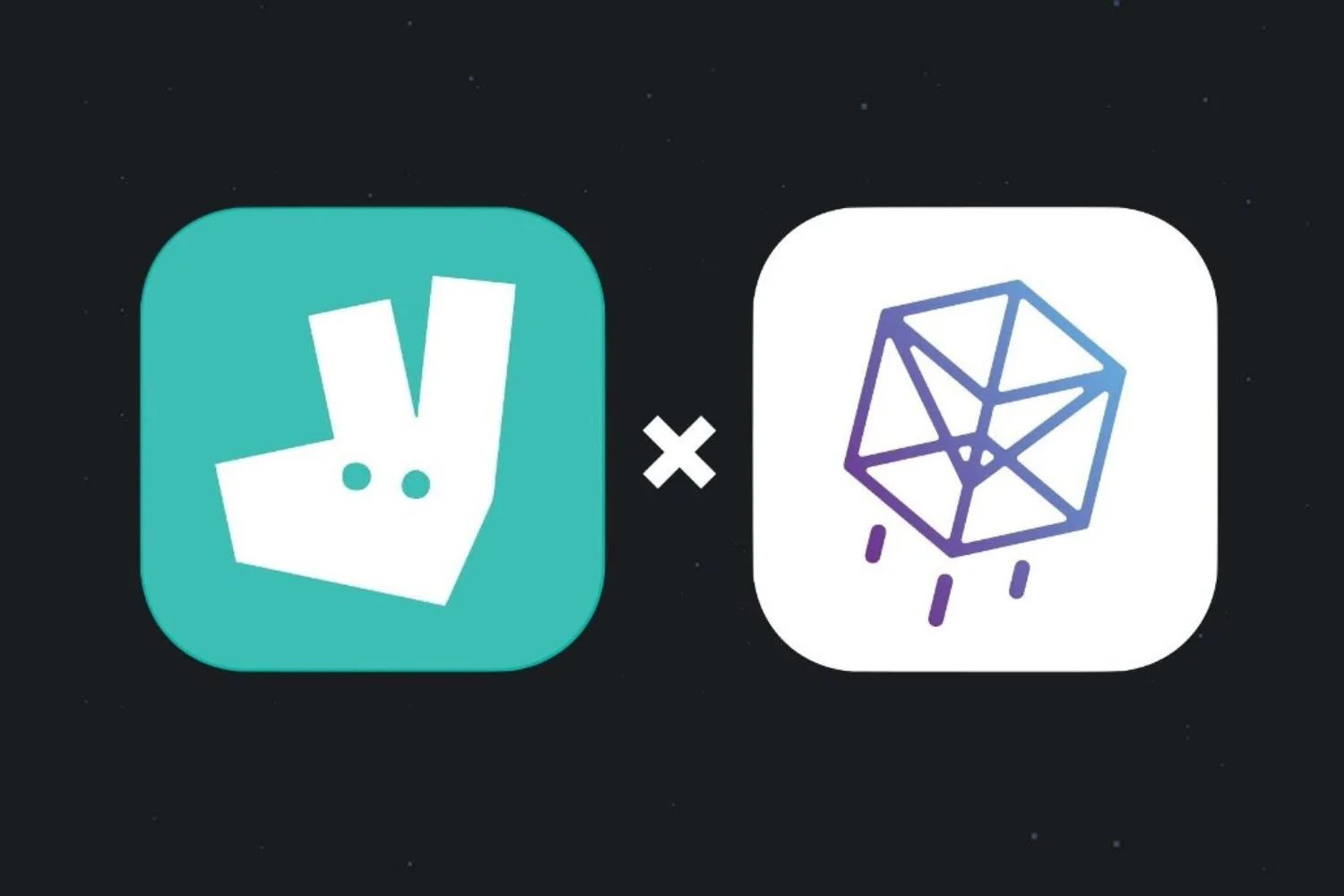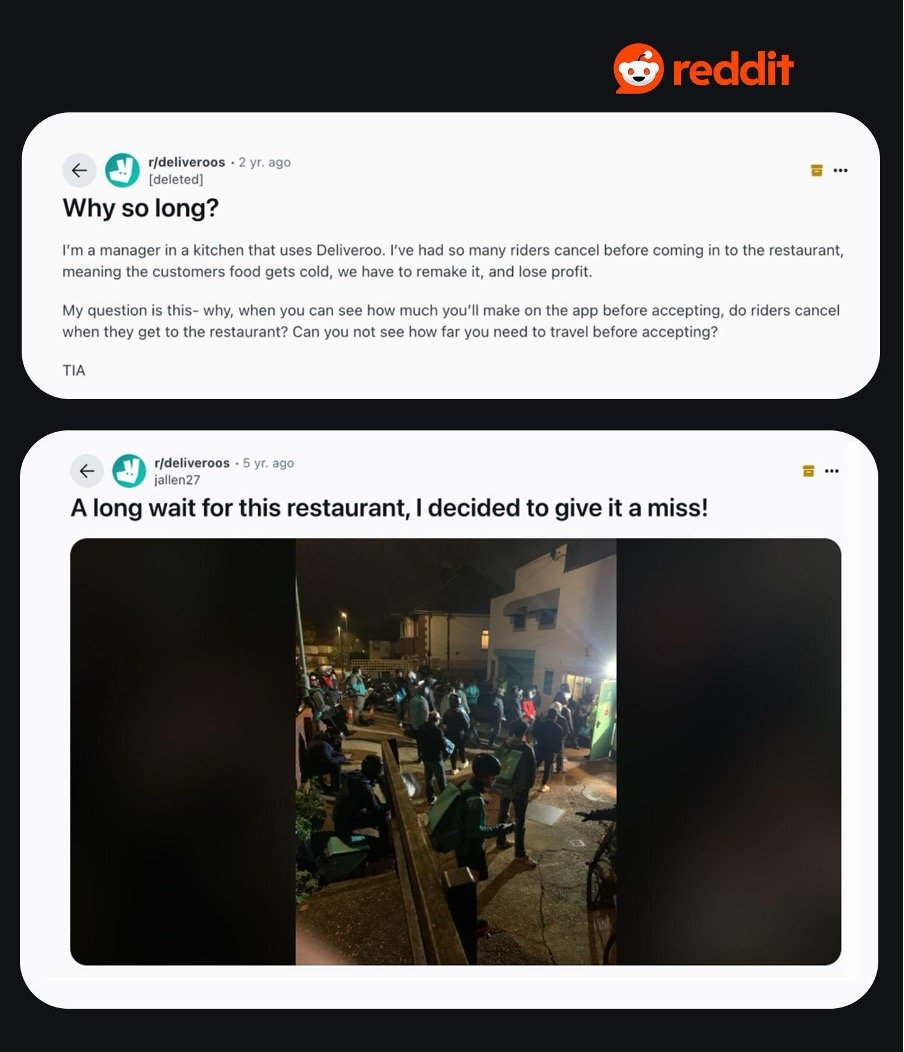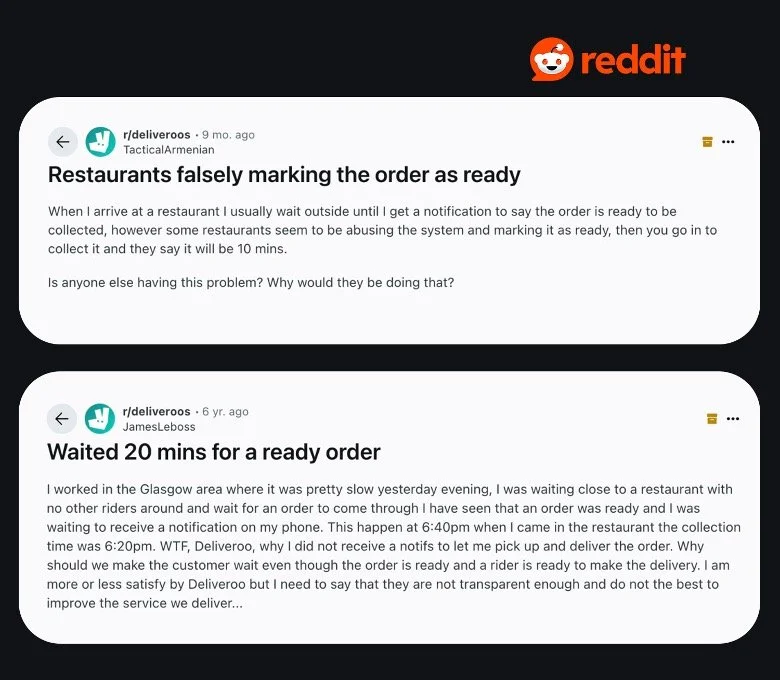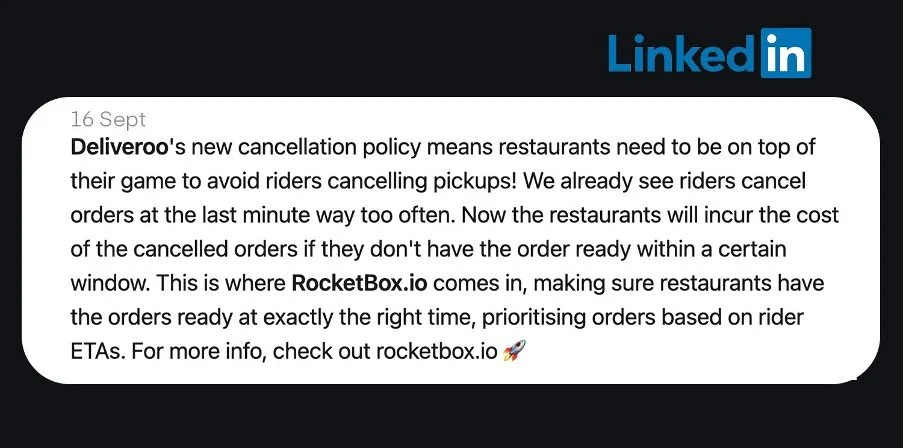How Restaurants Can Adapt to Deliveroo’s New Cancellation Rules
From 30th September 2025, Deliveroo is updating its cancellation rules. If a rider arrives within 15 minutes of your order’s prep time and the food isn’t ready, your restaurant could be charged for the order.
Deliveroo cancellations aren’t just inconvenient - they can lead to wasted ingredients, frustrated customers, and lost revenue. For busy kitchens that rely on Deliveroo deliveries, adapting to these new rules is essential for efficiency, customer satisfaction, and protecting your bottom line.
Understanding Real-World Deliveroo Challenges
Deliveroo cancellations often create real operational challenges for restaurants:
Riders canceling after accepting orders: On Deliveroo, riders sometimes accept an order and then cancel due to kitchen delays or long wait times. This leaves prepared food idle while the system assigns a new rider, causing waste and disappointing customers.
Pickup miscommunication: Some restaurants mark orders as “ready” on Deliveroo before the food is actually prepared, trying to ensure timely pickup. When the food isn’t ready, delays happen, frustrating both staff and customers.
These scenarios highlight that timing, coordination, and clear communication are critical for restaurants to reduce Deliveroo cancellations.
Smarter Deliveroo Order Management
Traditional kitchen workflows often rely on manual sequencing or FIFO (first in, first out), which can result in delayed Deliveroo pickups and higher cancellation rates. To optimise your Deliveroo operations:
Prioritise orders based on prep time and Deliveroo delivery windows: Start longer prep items early while scheduling shorter ones strategically.
Prepare food at the right time: Meals should be ready exactly when the Deliveroo rider arrives.
Provide real-time visibility to staff: Highlight urgent Deliveroo orders so nothing gets delayed.
Many restaurants are now using AI-powered solutions like RocketBox to automate Deliveroo order sequencing, reduce errors, and maintain smooth operations even during peak periods.
Coordinating Deliveroo Pickups
Timing is everything with Deliveroo. Orders prepared too early or too late risk cancellation, which affects both revenue and customer experience.
Restaurants can improve Deliveroo coordination by:
Tracking rider arrivals in real time: Knowing when a Deliveroo rider will arrive allows the kitchen to adjust prep schedules.
Adjusting kitchen workflow dynamically: Shift priorities for other orders based on real-time Deliveroo updates without disrupting service.
Syncing prep times with Deliveroo rider ETAs: Tools like RocketBox ensure food is ready exactly when it should be, reducing cancellations and keeping meals fresh.
Integrating systems with Deliveroo makes this coordination seamless, allowing kitchens to focus on cooking instead of constantly managing logistics.
Preventing Bottlenecks and Miscommunication in Deliveroo Orders
Even small miscommunications can lead to major delays: misplaced tickets, orders cooked out of sequence, or forgotten substitutions can all disrupt Deliveroo deliveries.
To prevent these issues:
Update orders instantly: Staff should always have real-time information on Deliveroo order changes.
Automate workflows: Reduce human error and ensure consistent execution.
Monitor kitchen stations for bottlenecks: Identify slow points and reallocate tasks before they impact Deliveroo delivery times.
AI-driven kitchen display systems help automate these processes, keeping teams organised, reducing stress, and ensuring Deliveroo orders stay on track.
Scaling Deliveroo Operations Across Multiple Locations
For restaurants with multiple locations, consistent processes are essential for handling Deliveroo orders efficiently:
Centralised dashboards: Monitor Deliveroo operations across all kitchens from a single interface.
Track performance trends: Identify recurring delays or mistakes and implement corrective actions.
Standardise workflows: Ensure every location follows the same processes, minimising training gaps and improving speed.
Consistency across multiple locations ensures a uniform customer experience while keeping Deliveroo operations efficient.
Leveraging Technology to Reduce Deliveroo Cancellations
Deliveroo’s updated cancellation policy underscores the importance of operational efficiency. Aligning kitchen prep with Deliveroo delivery schedules can reduce cancellations, improve workflow, and ensure food reaches customers hot and fresh.
AI-powered tools like RocketBox help restaurants:
Prioritise Deliveroo orders based on prep time and urgency.
Track Deliveroo rider arrivals in real time.
Provide actionable insights to optimise kitchen performance without adding complexity.
These solutions help kitchens maintain efficiency, minimise errors, and keep staff and customers satisfied.
Conclusion
Deliveroo’s updated cancellation rules highlight that efficiency is more important than ever. Restaurants that adopt smart processes, leverage technology, and coordinate effectively with Deliveroo can:
Minimise cancelled Deliveroo orders
Ensure food is delivered hot and fresh
Improve customer satisfaction
Protect revenue
Reduce staff stress during peak hours
For restaurants aiming to stay ahead of Deliveroo cancellations and streamline kitchen operations, RocketBox provides a smart, automated solution to manage orders, improve efficiency, and deliver a better customer experience. Learn more at rocketbox.io.




